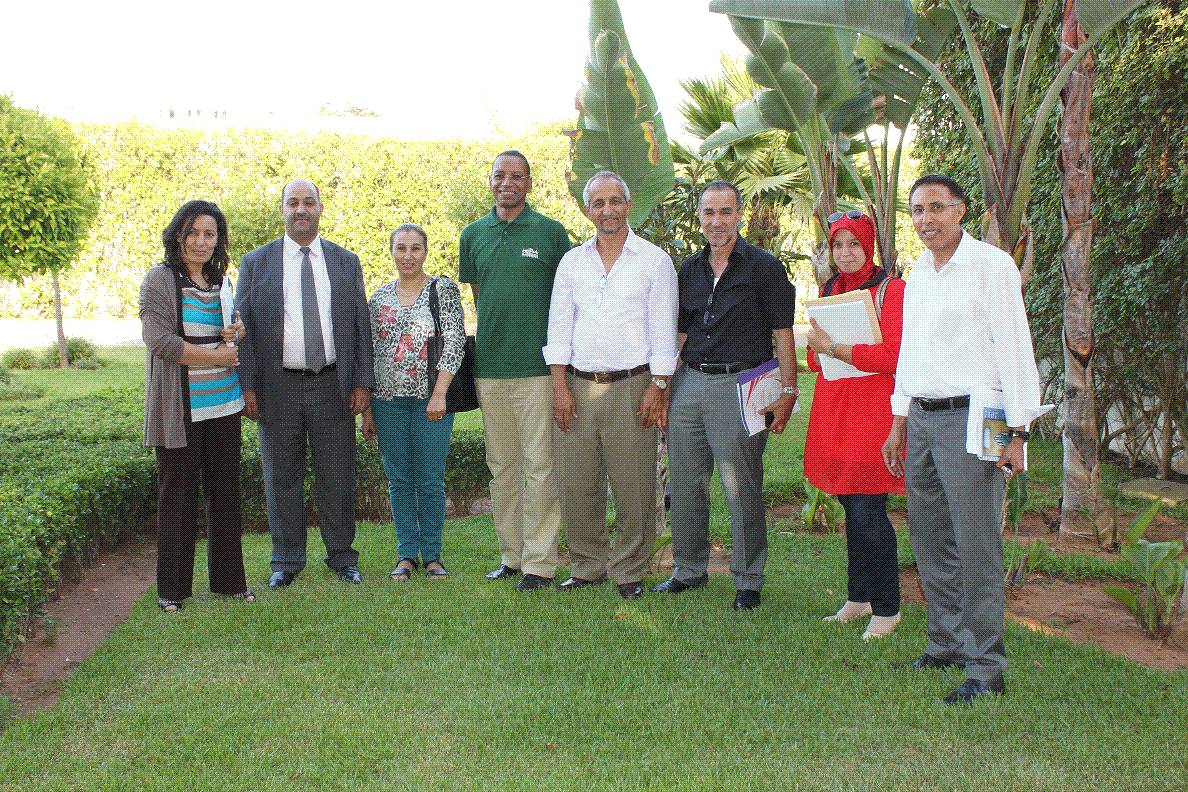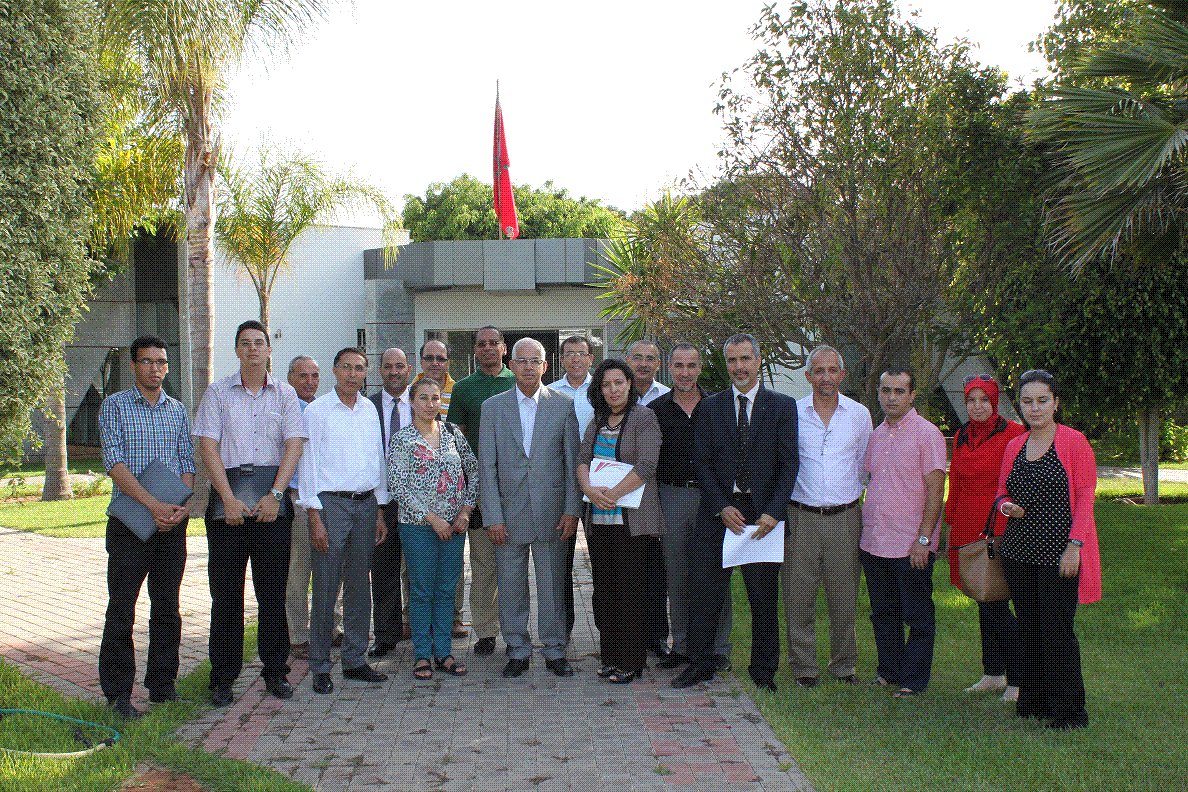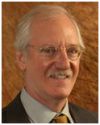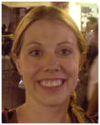Archives
Elisabete Martins
3rd International Conference on the Measurement and Economic Analysis of Regional Tourism - 6/8 November _ Medellín (Colombia)
General and specifics aims of the program
Bringing, to Medellin, international human talent in order to enhance tourism measurement in Antioquia framed in INRoute, which helps World Tourism Organization (UNWTO) in subjects such as the contribution of regional tourism to the economy of the country.
The more accurate the figures of any economic sector are the bigger the chances are of getting international investment on that sector. Due to the last sentence this program is aimed to encourage industries, authorities and academics to precisely measure tourism in their territories. At the same time, to teach how tourism can be measured on a smaller scale is also one of the goals of this conference. Not only tourism can be measured in a national quantity but also on a departmental scale. Therefore, tools and techniques to take decisions are to be shown in the present program.
Metodology
Plenary conferences with the participation of well renowned keynote speakers and policy makers.
Justification of the program
Tourism is unevenly distributed across the national territory; therefore a better understanding of tourism activity at sub-national level will be instrumental for a more efficient policy design at national level. Thus, sub-national measurement and analysis of tourism becomes an extremely relevant issue.
The present MOVE2013 Conference is organized within the conceptual framework of the International Network on Regional Economics, Mobility and Tourism (INRouTe), an initiative promoted by the World Tourism Organization (UNWTO). This network is dedicated to advancing policy-oriented measurement and analysis of tourism in order to provide operational guidance to entities involved with regional and local tourism destinations.
Tourism Observatories
The design of a Regional Tourism Observatory as proposed by INRouTe is conceived to be the necessary institutional tool for the setting up of a Regional Tourism Information System (R-TIS) and its sustainability. The setting up of a R-TIS is not just a technical challenge associated to the creation of a database: it goes well beyond that issue. It also requires an institutional tool in order to bring together legitimacy and credibility for regional tourism and assist to the sustainability of such system. The design of a Tourism Observatory as proposed by INRouTe should consider the following elements: The strategic objective / Programmes / Activities / Assessing the effectiveness of programmes implementation / Technological infrastructure and other resources.
Visitors Behavior Measurement and Deconstruction of Tourism Destinations Demand
Household and borders surveys are the main methodologies used for the measurement and analysis of tourism nationwide. However, when knowing what does a visitor do when he/she is in a certain destination turns to be key for designing tourism policies, such surveys fall short. Assuming that national or regional surveys should be the basis for comparison at the national and international levels, it seems also necessary to establish a set of guidelines for performance measurement and analysis of sub-regional tourism. The collection of detailed information on the behavior at the destinations, the visited points, the means of transport used, and the associated costs, requires new forms of measurement. Gaining further knowledge on these aspects means advancing on the measurement of typologies, products and itineraries.
Meetings Industry
The present conference is interested in making advances on constructing a coherent and systematic picture of the economic relevance of the Meetings Industry in regional economies, specifically evaluating different options to measure the Meetings Industry linkage to tourism.
More information: Here
Call for papers NECTAR cluster 6 meeting in Seville
Please find enclosed the call for abstracts for the NECTAR 6 Cluster Workshop in Seville, Spain 6th and 7th February 2014.The deadline for submission of abstracts is the 6th of October 2013.
Please note that all enquiries should be directed to the organizing committee by Ana Condeço (This email address is being protected from spambots. You need JavaScript enabled to view it.This email address is being protected from spambots. You need JavaScript enabled to view it.).
NECTAR Cluster 1 workshop - April 2014 - call for abstracts
Please find enclosed the call for abstracts for the NECTAR 1 Cluster Workshop in Liege in April 2014.The deadline for submission of abstracts is September 23rd .
Please note that all enquiries should be directed to the organizing committee at This email address is being protected from spambots. You need JavaScript enabled to view it.This email address is being protected from spambots. You need JavaScript enabled to view it..
The latest issue of Regional Science Policy & Practice is available!
Regional Science Policy & Practice
© RSAI
Volume 5, Issue 3 Pages i - i, 263 - 368, August 2013
The latest issue of Regional Science Policy & Practice is available on Wiley Online Library
Issue Information
Issue Information (page i)
Article first published online: 18 AUG 2013 | DOI: 10.1111/j.1757-7802.2013.01095.x
ARTICLES
A spatial microsimulation approach to economic policy analysis in Scotland (pages 263–288)
Malcolm Campbell and Dimitris Ballas
Article first published online: 16 MAY 2013 | DOI: 10.1111/rsp3.12009
Economic base multipliers: a comparison of ACDS and IMPLAN (pages 289–303)
Gordon Mulligan, Randall Jackson and Amanda Krugh
Article first published online: 16 MAY 2013 | DOI: 10.1111/rsp3.12010
Tolls, exchange rates, and northbound international bridge traffic from Mexico (pages 305–321)
Thomas M. Fullerton Jr., Angel L. Molina Jr and Adam G. Walke
Article first published online: 2 MAY 2013 | DOI: 10.1111/rsp3.12011
Spatial and temporal evolution of urban-rural integrated development levels in Jiangsu Province, China (pages 323–341)
Yueting Guo and Jiangang Xu
Article first published online: 2 MAY 2013 | DOI: 10.1111/rsp3.12012
Growth in Indonesia's manufacturing sectors: Urban and localization contributions (pages 343–368)
Jennifer Day and Peter Ellis
Article first published online: 2 MAY 2013 | DOI: 10.1111/rsp3.12015
JOB POSITION | Associate or Assistant Professor in Urban and Regional Planning at the University of California, Irvine in the Department of Planning, Policy, and Design
University of California, Irvine
Department of Planning, Policy, and Design
Associate or Assistant Professor in Urban and Regional Planning
The Department of Planning, Policy, and Design at UC Irvine invites applications from productive Planning scholars to fill an Associate or Assistant Professor position. The topical focus is open but candidates with research interests in the areas of the legal aspects of land use and environmental planning, planning theory, sustainable development, transportation, environmental planning, and/or international development planning are of special interest in the search. The successful candidate for this tenure-track position will have a Ph.D. in Planning and show clear evidence of strong ties to Planning scholarship and practice. A track record of external funding is desired.
Faculty members in the Department of Planning, Policy, and Design have been ranked in the top ten in scholarly productivity among all U.S. planning programs and a recent survey of over 350 Planning educators ranked UC Irvine’s Master of Urban and Regional Planning program as the second best graduate Planning program in the U.S. and Canada. We have research strengths in land use and transportation, housing and community development, environmental policy and planning, inequality and economic opportunity, urban design, and regional governance and the faculty conducts research in U.S. and international settings. The department offers a Ph.D. degree in Planning, Policy, and Design, a Master of Urban and Regional Planning degree, a collaborative Master of Public Policy degree, and an undergraduate degree in Urban Studies.
For full consideration, candidates should apply by October 11, 2013. The position will remain open until filled. We anticipate that the successful candidate will start July 1, 2014. Candidates should apply online at https://recruit.ap.uci.edu/apply/JPF02087 by submitting a cover letter, c.v., three letters of reference, publications or writing samples, and a brief statement of teaching interests and capabilities. For more information, please contact the search committee chair, Victoria Basolo (This email address is being protected from spambots. You need JavaScript enabled to view it.This email address is being protected from spambots. You need JavaScript enabled to view it.).
UC Irvine, with over 28,000 students, is a member of the Association of American Universities and is consistently ranked among the nation’s best universities, public and private. The campus is located five miles from the Pacific Ocean and forty miles south of Los Angeles, in a dynamic region at the heart of the diverse Southern California metropolis. UC Irvine is an equal opportunity employer committed to excellence through diversity and strongly encourages applications from all qualified applicants, including women and minorities. UC Irvine is responsive to the needs of dual career couples, is dedicated to work-life balance through an array of family-friendly policies, and is the recipient of an NSF ADVANCE Award for gender equity.
JOB POSITION | University of California tenure track faculty position in Human Geography
UNIVERSITY OF CALIFORNIA SANTA BARBARA, Department of Geography, invites applications for a tenure-track position in Human Geography at the rank of Assistant Professor. The successful candidate will exhibit clear potential for a robust extramurally funded research program in Population, Development, and/or Health that is empirically grounded and informed by social science theory. Candidates will preferably have research programs that integrate at least two of these domains. A Ph.D. is required by the date of appointment. Current human geography faculty members are active participants in the Broom Center for Demography, the Center for Spatial Studies, and graduate emphases in Cognitive Science and Quantitative Methods in the Social Sciences. We welcome candidates who are willing to collaborate with departmental faculty in spatial science and physical geography, and/or with faculty from other research units and departments across campus. To learn more about the department, visit our website at www.geog.ucsb.edu. The application deadline is November 30, 2013; the starting date is July 1, 2014.
To apply, please log in to https://recruit.ap.ucsb.edu/apply/JPF00215 to submit your cover letter, curriculum vitae, statements of research and teaching interests, and names of three referees with their contact information. For more information, please contact the search committee chair Dr. Stuart Sweeney (This email address is being protected from spambots. You need JavaScript enabled to view it.This email address is being protected from spambots. You need JavaScript enabled to view it.).
The department is especially interested in candidates who can contribute to the diversity and excellence of the academic community through research, teaching, and service. The University of California is an Equal Opportunity / Affirmative Action employer.
Arizona State University
The School of Geographical Sciences and Urban Planning at ASU offer instruction, research and outreach in geography, urban planning and GIS, with several undergraduate and graduate degree programs, exciting interdisciplinary research efforts and centers, and important community engagement.
Through ASU Online, the university offers online degree programs that may be of interest to students searching for distance options, or those who are otherwise unable to attend ASU's in-house programs. The ASU Online GIS webpage is: https://asuonline.asu.edu/online-degree-programs/undergraduate/geographic-information-science-bs
Programs and Degrees in Regional Science
B.S. in Geography with GIS Certificate
B.S. in Geography (Urban Studies with GIS Certificate)
Masters of Advanced Study (M.A.S.) in Geographic Information Systems
Ph.D. in Geography (Computational Spatial Science at ASU)
Thesis on Regional Science in the last five years
2013
Nicholas Malizia - Ph.D. - Essays on Space-Time Interaction Tests
Anselin (Chair), Rey, Murray
Pedro Amaral - Ph.D. - The spatial distribution of health equipment in Brazil
Roberts (Cambridge); visiting student at GeoDa Center
2012
David Folch - Ph.D. - The Centralization Index as a Measure of Local Spatial Segregation
Rey (Chair), Anselin, Murray
Ran Wei - Ph.D. - Addressing Geographic Uncertainty In Spatial Optimization
Murray (Chair), Anselin, Rey, Mack
Jing Yao - Ph.D. - Spatial Optimization Approaches for Solving the Continuous Weber and multi-Weber Problems
Murray (Chair), Anselin, Rey
2011
Der-Shiuan Lee - Ph.D. – Taiwan Intermetropolitan Networks of Co-invention in American Biotechnology
Ó Huallacháin (Chair), Kuby, Anselin
Daniel Arribas-Bel - Ph.D. - Essays on the distribution and spatial structure of cities
Rey; visiting student at GeoDa Center
Students Awards in Regional Science
2011 - Editor's Choice for Best Referee in Spatial Economic Analysis, Regional Studies Association
2010 - Graduate Student Paper Competition (3rd place), North American Regional Science Council
2009 - Taught Master Award (now known as Nathaniel Lichfield Award), Regional Studies Association
2008 - Best Young Spatial Econometrician - Applied Paper, Spatial Econometrics Association
2013 - Regional Studies Association (RSA) Early Career Research Grant
2009-2010 - 10th Annual Benjamin Stevens Graduate Fellowship, North American Regional Science Council
Regional Science Scholars
|
Luc Anselin |
Sergio Rey |
Alan Murray |
Elizabeth Mack |
The latest issue of Papers in Regional Science is available!
Papers in Regional Science
© RSAI
Volume 92, Issue 3 Pages 445 - 689, August 2013
The latest issue of Papers in Regional Science is available on Wiley Online Library
ARTICLES
Over-education and spatial flexibility: New evidence from Italian survey data (pages 445–464)
Carlo Devillanova
Article first published online: 30 APR 2012 | DOI: 10.1111/j.1435-5957.2012.00434.x
Closing the gap between absolute and relative measures of localization, concentration or specialization (pages 465–479)
Frank Bickenbach, Eckhardt Bode and Christiane Krieger-Boden
Article first published online: 23 OCT 2012 | DOI: 10.1111/j.1435-5957.2012.00460.x
Unemployment by gender and gender catching-up: Empirical evidence from the Italian regions (pages 481–494)
Marianna Belloc and Riccardo Tilli
Article first published online: 29 MAR 2012 | DOI: 10.1111/j.1435-5957.2012.00427.x
Entrepreneurial quality and regional development: Characterizing SME sectors in low income areas (pages 495–513)
José Fernández-Serrano and Isidoro Romero
Article first published online: 22 FEB 2012 | DOI: 10.1111/j.1435-5957.2012.00421.x
Urban spatial structure, agglomeration economies, and economic growth in Barcelona: An intra-metropolitan perspective (pages 515–534)
Miquel-Àngel Garcia-López and Ivan Muñiz
Article first published online: 19 DEC 2011 | DOI: 10.1111/j.1435-5957.2011.00409.x
Does political fragmentation lead to budgetary incrementalism? An empirical test on the French local public sector (pages 535–553)
Benoît Le Maux and Wenjia Zhang
Article first published online: 29 FEB 2012 | DOI: 10.1111/j.1435-5957.2012.00420.x
Towards an integrated European Research Area? Findings from Eigenvector spatially filtered spatial interaction models using European Framework Programme data (pages 555–577)
Thomas Scherngell and Rafael Lata
Article first published online: 13 MAR 2012 | DOI: 10.1111/j.1435-5957.2012.00419.x
US state and local fiscal policies and non-metropolitan area economic performance: A spatial equilibrium analysis (pages 579–597)
Yihua Yu and Dan S. Rickman
Article first published online: 27 MAR 2012 | DOI: 10.1111/j.1435-5957.2012.00423.x
Tariff policy and transport costs under reciprocal dumping (pages 599–608)
Jun Oshiro
Article first published online: 7 FEB 2012 | DOI: 10.1111/j.1435-5957.2012.00417.x
Heterogeneous households and firms in an urban model with open space and agglomeration economies (pages 609–631)
Chen Feng Ng
Article first published online: 29 MAR 2012 | DOI: 10.1111/j.1435-5957.2012.00426.x
Testing a polynomial relationship of the non-parametric component in partially linear spatial autoregressive models (pages 633–649)
Tizheng Li and Changlin Mei
Article first published online: 30 MAR 2012 | DOI: 10.1111/j.1435-5957.2012.00428.x
A Bayesian spatial econometric analysis of the 2010 UK General Election (pages 651–666)
Christa D. Jensen, Donald J. Lacombe and Stuart G. McIntyre
Article first published online: 7 FEB 2012 | DOI: 10.1111/j.1435-5957.2012.00415.x
R&D competition in a spatial model with technical risk (pages 667–682)
Changying Li and Jianhu Zhang
Article first published online: 24 APR 2012 | DOI: 10.1111/j.1435-5957.2012.00433.x
BOOK REVIEWS
Entrepreneurship, Innovation and Regional Development: An Introduction. by Jay Mitra. Abingdon: Routledge, 2012. 348 pp. £34.99. ISBN: 978-0-415-40516-4. (pages 683–684)
Michael Fritsch
Article first published online: 6 AUG 2013 | DOI: 10.1111/pirs.12039
Networking Regionalised Innovative Labour Markets. edited by Ulrich Hilpert and Helen Lawton Smith (eds). Series: Regions and Cities. New York: Routledge. 2013. 206 pp. £75.00. ISBN: 978-0-415-68356-2. (pages 684–685)
Johan P. Larsson
Article first published online: 6 AUG 2013 | DOI: 10.1111/pirs.12040
Creating Knowledge Locations in Cities: Innovation and Integration Challenges. edited by Willem van Winden , Luis de Carvalho , Erwin van Tuijl , Jeroen van Haaren and Leo van den Berg (eds). London: Routledge. 2012. 272 pp. £90. ISBN: 978-0-415-69854-2. (pages 685–689)
Karima Kourtit
Article first published online: 6 AUG 2013 | DOI: 10.1111/pirs.12031
The University of Arizona
The School of Geography and Development (SGD) is part of a top-ranked Research One land-grant university. The faculty and graduate student expertise covers the entire spectrum of contemporary geography. SGD offers a range of academic and professional degrees at the undergraduate and graduate levels.
The Regional Economics And Spatial Modeling (REASM) laboratory is a research center focusing on the development of theories and tools to model urban, regional and interregional economic systems. Founded in 2012 by Drs. Sandy Dall’erba and Daoqin Tong, REASM’s expertise consists in modeling spatial interactions based on techniques such as Geographical Information Systems, spatial statistics, spatial econometrics, interregional input-output and spatial optimization analysis. Applications cover fields as broad as regional economic growth, regional and local development, public policies, the housing market, public and private service facility location, farmers’ markets, transportation and, more recently, the impact of climate change on agriculture.
Programs and Degrees in Regional Science
 |
 |
|
| Regional Economics And Spatial Modelling Laboratory - REASM | School of Geography and Development – SGD |
Thesis on Regional Science in the last five years
2012
Liz Ileana Rodriguez-Gamez- Ph.D. - New perspectives on the spatial analysis of urban employment distribution and commuting patterns: The cases of Hermosillo and Ciudad Obregon, Mexico
Sandy Dall’erba
2011
Trevor Kollmann- Ph.D. - Housing Markets, Government Programs, and Race during the Great Depression
Sandy Dall’erba
2010
Jason Jurjevich- Ph.D. - Compositional and Contextual Effects Across Political Landscapes: Case Studies of Migration and Same-Sex Marriage
David Plane
2008
Sandra Holland- Ph.D. - Hedonic Modeling of the Tucson Housing Market: The Effect of Educational Submarkets on House Prices
David Plane
Students Awards in Regional Science
 Honorable Mention Status - 25th Charles M. Tiebout Prize Competition- Western Regional Science meeting
Honorable Mention Status - 25th Charles M. Tiebout Prize Competition- Western Regional Science meeting
2011 - Liz Ileana Rodriguez-Gamez - Employment density in Hermosillo, 1999-2004: a spatial econometric approach of local parameters
Finalist - 25th Charles M. Tiebout Prize Competition- Western Regional Science meeting
2011 - Trevor Kollmann - Impact of African American Migration on Housing in New York City Neighborhoods during the Great Depression
Regional Science Scholars
|
Sandy Dall’erba |
George Hammond |
David Plane |
Daoqin Tong |
Members of the Founder Group of the Moroccan Regional Science Association, and of the Board of this Association. Institut Royal des Etudes Stratégiques, 6th of August 2013
The RSAI Council of Palermo approved unanimously the inclusion of the Regional Science Association of Morocco as an official section of RSAI. The Regional Science Association of Morocco is the first RSAI section in Africa and more sections could appear following the Regional Science activities in South Africa, Angola, Cape Verde and Maghreb countries.


About Us
The Regional Science Association International (RSAI), founded in 1954, is an international community of scholars interested in the regional impacts of national or global processes of economic and social change.










